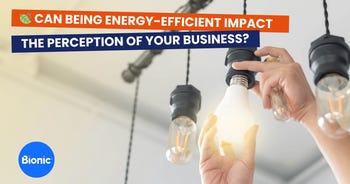Who are Ofgem, and what do they do for small businesses?
Many business owners will be familiar with Ofgem, especially as they have been in recent news concerning energy price caps. But what exactly is the role of this government regulator, and how does it affect small businesses?
Let’s take a closer look at Ofgem - to understand what it stands for, its responsibilities and how this regulator works to ensure small businesses are treated fairly.
30 Second Summary
- Ofgem is the official energy regulator for the UK, safeguarding consumers and promoting fair market competition. Their aim is to make sure the UK has secure energy supplies, fair treatment of consumers, promoting value for money and sustainability.
- Ofgem achieves this through investigations, working with energy suppliers and comparison websites, licensing processes, price control, and administering environmental schemes.
- Ofgem is funded by the electricity and gas companies it regulates. While it can be challenging to measure impact, Ofgem often fines suppliers that breach policies.
- Consumers can contact Ofgem for general inquiries, but complaints about suppliers should be direct. Customers can also contact Citizen's Advice and the Energy Ombudsman.
- There is no price cap on business energy, instead, Ofgem supports micro-businesses and small businesses through specific policies.
What is Ofgem?
Ofgem, which stands for the Office of Gas and Electricity Markets, is the official energy regulator for the UK. They are an independent regulatory body, also known as a “watchdog," that protects consumers and promotes fair market competition.
As the energy regulator, Ofgem’s role is safeguarding domestic and non-domestic customers by working alongside the government, energy companies and other stakeholders to ensure a secure supply of electricity and gas and fair prices for consumers.
What are Ofgem’s objectives?
Ofgem’s main role is to oversee the UK’s energy industry by regulating the private companies which control gas and electricity networks.
It became necessary to regulate the industry when the monopoly of the Central Electricity Generating Board (CEGB) — which was broken up into two electricity generation companies, (PowerGen and National Power) and the National Grid. This ended in 1986, and businesses were then free to choose their own provider, compare energy prices and shop around for the best deal.
The main objective of the Ofgem regulator is to protect the interest of energy consumers by:
- Ensuring supplies of electricity and gas are secure and can meet fluctuating demands.
- Making sure consumers are treated fairly by energy companies, especially the most vulnerable.
- Promoting value for money in terms of energy prices and encouraging competition in the energy market.
- Prioritising sustainability and ensuring the 2050 net-zero energy strategy can become a reality.
How does Ofgem achieve its objectives?
Ofgem achieves the above goals by:
- Investigating — Fining energy companies that have breached legislation.
- Working with energy suppliers — To ensure they can provide assistance for vulnerable customers and deal with complaints.
- Working with comparison websites — Ofgem works with comparison sites, like Bionic, to ensure businesses have access to the best deals and fair prices.
- Licensing processes — Overseeing the licensing process for organisations looking to enter the energy market.
- Price control — Setting price controls on energy supplies which cap the amount companies can charge customers.
- Administration — Administering and ensuring compliance with environmental schemes focusing on renewable energy production.
How is Ofgem funded?
Ofgem is funded by the electricity and gas companies it regulates and provides with licenses.
Even though the companies pay an annual license fee, Ofgem remains independent and impartial from the companies that it regulates.
How effective is Ofgem?
Although it can be a little bit of a challenge to measure Ofgem’s impact, one way is by looking at the fines given to energy companies that have broken policies.
In 2020, Ofgem fined the energy supplier SSE £2.06 million for failing to publish inside information about the wholesale energy market.
And, in March 2023, Ofgem fined non-domestic energy supplier United Gas & Power £2.1 million for inflating consumption estimates and “deliberately overcharging” customers. In June of this year (2023), electricity generator SSE was again fined £9.78 million for breaching their generation license.
But, it is important to note that even hefty fines like these are small compared to the large profits many suppliers record, which could question have effective Ofgem’s financial penalties actually are.
How can I contact Ofgem?
Although energy customers have relatively little direct contact with Ofgem, there are a few ways to get in touch with the regulator.
General Inquiries
For inquiries about general policies, email consumeraffairs@ofgem.gov.uk anytime or ring 020 7901 7295 between the hours of 9:30 am to 4.30 pm Monday, Tuesday and Thursday, between 9:30am and 12.30pm on Wednesdays and 9.30am to 4pm on Fridays.
Complaints about your business energy supplier
Ofgem doesn’t deal with individual complaints about suppliers. Citizen’s Advice and the Energy Ombudsman can help deal with any queries.
The best way to direct complaints about your supplier is to follow Ofgem’s step-by-step complaints guide, which contains all the relevant information and contact details.
You can also check out our guide on how to make a complaint about your business energy supplier.
Complaints about Ofgem
If your complaint is about Ofgem itself, the best contact email is feedback@ofgem.co.uk or you can send a letter to this address:
Ofgem Complaint
Commonwealth House
32 Albion Street
Glasgow
G1 1LH
Ofgem states that they will reply to complaints within 20 working days. If the response you receive is unsatisfactory, another correspondence can be sent, which will be responded to within another 20 working days — making it quite a lengthy process.
If you still aren’t happy with the response, the next best thing to do is contact your MP and ask them to direct your complaint to The Parliamentary and Health Service Ombudsman.
What is Ofgem’s energy price cap and does it apply to businesses?
To help protect customers from recent skyrocketing energy costs, Ofgem created an energy price cap on the maximum amount suppliers can charge domestic consumers for energy per kWh. This cap controls the amount of profit the private companies can make and protects consumers from being unfairly overcharged.
The cap changed on 1st July to reflect the recent fall in wholesale energy prices and is now set at £2,074 annually for a dual-fuel household. The cap applies to all domestic customers only on default energy tariffs, no matter their payment method, including direct debit and prepayment methods - but does it apply to businesses?
The straightforward answer is no - there is no price cap on non-domestic energy. However, the government is currently offering support by discounting business energy unit rates as part of the Energy Bills Discount Scheme. The scheme offers discounted unit rates on fixed-price contracts signed on or after the 1st December 2021.
It’s important to remember that the scheme doesn’t cap your bill, so the more energy your business consumes, the more you’ll be charged.
For advice on cutting costs, take a look at our guide on how to save business energy.
What does Ofgem do for small businesses?
If there is no price energy price cap for non-domestic energy, what exactly does the regulator do to protect small businesses?
Support for Micro business
Ofgem has a set of policies to help protect micro businesses. To be considered a “microbusiness”, an organisation must meet at least one of the following rules:
- Employ fewer than 10 people
- Has an annual turnover or balance sheet of no more than £2 million
- Consumes no more than 100,000 kWh or energy a year
- Uses no more than kWh of gas per year
The ‘Ofgem Microbusiness Strategic Review’ was carried out in 2019 and found that micro businesses are more at risk when it comes to accessing competitive prices.
To help safeguard microbusinesses, Ofgem introduced a set of policies, that came into effect in October 2022, including:
- Stronger supply licensing conditions which make third-party costs clearer
- A new licence condition which means suppliers must only work with brokers signed up to a Broker Alternative Dispute Resolution (ADR) Scheme
- Microbusinesses don’t have to provide notice when they want to switch supplier
To find out more about paying for energy, our guide on micro business energy contracts has everything you need to know.
Get your business set with Bionic
No matter the size of your business, it’s clear Ofgem plays an important role as the government regulator for the electricity market. Ofgem makes it possible for your business to choose from a wide range of energy suppliers to make sure you get the right fit for your needs.
That's where Bionic can help. Just one call to our tech-enabled experts is all it takes to compare quotes from our trusted panel of suppliers. And because business energy is more complex than domestic energy, we'll talk you through the results to make sure you get the right deal.
If you need more help understanding business energy, head over to our energy guide pages for more information. Or, get in touch today with the Bionic team to discuss your business energy needs, including electricity and gas.








